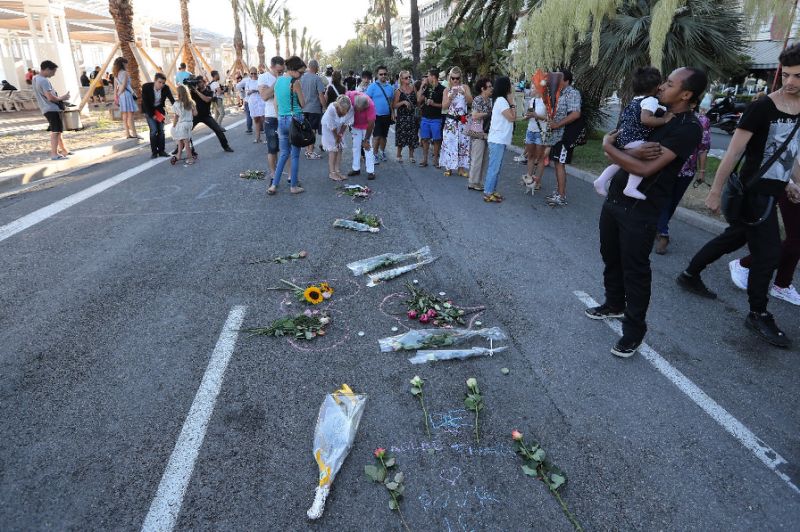Brussels-The French Nice terror attack which killed 84 people and injured 202, came after information was received on ISIS recruits escaping Syrian terrain and having set towards carrying out missions in Europe, especially France and Belgium.
The terror cell that carried out attacks in Paris and Brussels was reportedly planning to target the Euro 2016 football championships in France this summer.
A Belgian minister has warned of more Euro 2016 terror plots as it emerged a dozen suspects remain in custody following a series of raids.
In a mass operation, police arrested 40 people in Brussels, Liege and Anderlecht in the early hours of Saturday morning.
Amid fears of an ‘imminent’ attack on Euro 2016 football fanzone, Interior Minister Jan Jambon warned: ‘It’s not over’.
The Nice attack is a part of a series of terror attacks suffered by France since 2015, as of the Charlie Hebdo shooting incident. The terror campaign waged against France is composed of a number of attacks, some of which discovered and averted successfully by authorities.
ISIS adopted most of the attacks, while other offensives were adopted by al-Qaeda off-shoots, not to mention attacks carried out by European extremist organizations.
Belgian Prime Minister Charles Michel said that security bodies and intelligence agencies in his country have already looked into the possibilities of a terrorist attack in which a truck is used, just as the tragic scenario of the Nice attack.
A report published in 2015, said that the number of cases relative to the funding of terrorism in Europe, especially Belgium, had increased from 35 cases in 2014 to 75 in 2015.
The reasons why Belgium is attractive to terrorists are diverse. First there is its strategic location between France, Germany and the UK. Second, the anonymity of Belgium’s capital appears to offer an ideal hiding place, with some sympathizers for the terrorist struggle – individuals, not communities – willing to give a helping hand to plotters.
Molenbeek – one of Brussels’ 19 districts– has a population of about 100,000, with around 30% of foreign nationality and more than 40% with foreign roots. Unemployment is higher than 25%, with youth unemployment even higher.
Young inhabitants, often with Muslim backgrounds, do not get the same chances in the labor or housing market, and testify how in their everyday lives they are confronted with racism. They have the perfect profile to be prone to radicalization. If the Belgian state had put more effort into integrating migrant communities, the potential for radicalization would have been significantly smaller today.
The report further added that well-established terrorist organizations , such as ISIS, receive large sums of funds. The funding poured into terrorist attacks is considerably low in comparison. In most cases, 75 percent of the attacks cost under $10,000.
Moreover, extremists and foreign combatants most of the time resort to a legal source of funding, such as social aid, personal loans to cover their trip to Syria or to prepare for an attack.
The report added that one in four European terrorists receive funds from internationally recognized terrorist organizations.
